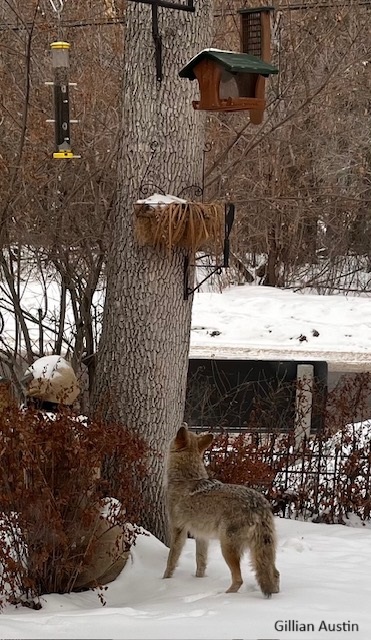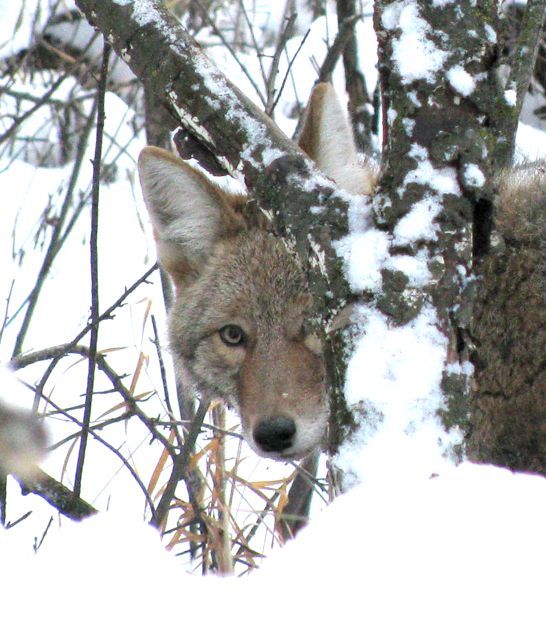
Avoiding and preventing conflict
Edmonton residents can do a great deal to help avoid negative human-coyote interactions to support coexistence.
Secure attractants. The most important thing to do in residential neighborhoods is to prevent access to human sources of food. Remove or secure all food sources on or near the ground such as garbage, compost, bird seed, pet food, and fruit, including crab apples and berries. Avoid feeding any wildlife on the ground, which readily spreads disease as well as attracts rodents and coyotes. NEVER intentionally feed or leave food for coyotes, which puts people at direct risk of conflict and exposure to a parasitic tapeworm that can infect people.
Contain and control pets. Small pets can attract coyotes as potential prey and some coyotes may learn to target cats that roam and small dogs protected by short fences. Larger dogs easily cause territorial and defensive behaviour, particularly when they are off-leash in on-leash areas where coyotes do not expect to encounter them. Never let your dog play with or be chased by coyotes. These interactions teach coyotes how to manipulate or dominate dogs, creating conditions that will endanger other dogs in future.
Teach wariness. Ensure that coyotes keep their natural fear of humans by treating them aggressively, particularly in residential neighbourhoods. If comfortable doing so, directly approach coyotes in these contexts while throwing objects (such as a tennis ball or stone), carrying a protective stick, and shouting or shaking a can containing coins. This treatment, known as hazing, is intended to teach coyotes more fear of people. Wary coyotes that avoid close proximity to people reduce both opportunities for and perceptions of conflict. Coyotes that lose their fear of people and become habituated are much more likely to access human food and become food-conditioned. Food-conditioned animals seek out people whom they associate with food, which always leads to escalating conflict. Never run away from a coyote, which can induce a chase.
More information
Government of Alberta: Coyotes
Lethal management
When bold coyotes repeatedly approach and threaten people and pets, lethal management by wildlife professionals may be necessary. This outcome can be prevented by avoiding food conditioning, interactions with pets, and habituation. Lethal management can reduce a conflict situation in the short term, but it is not an effective solution for the long term because removed coyotes are rapidly replaced by other individuals. Populations that are persecuted tend to exhibit lower ages of first reproduction, which makes more coyotes. A more effective strategy for coexistence is to educate both people and coyotes to avoid conflict.









